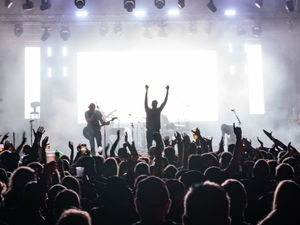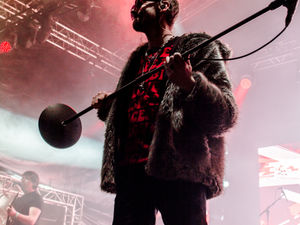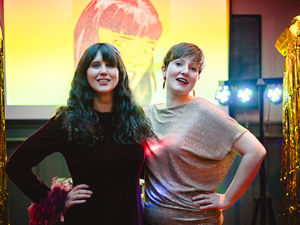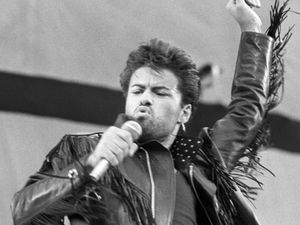Akala: In Conversation, Glee Club, Birmingham - review
Everything from race and religion to gangsters and education was covered during a truly enthralling evening in the company of Akala.
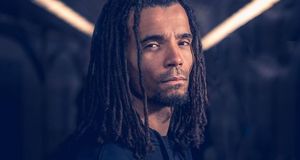
The rapper, author, lecturer and activist has so many strings to his bow it's a wonder how he found time to sit and chat to a packed Glee Club in Birmingham about life, the universe and everything in between.
But after giving him a mic and a few prompts last night, he just unloaded for more than an hour about his childhood, upbringing, career and how all of the above helped shape him into the man he is today.
Of course, growing up in Kentish Town, London, came with its far share of tough moments, and he realises his path could have been so different.
He had two types of uncles growing up – those who were gangsters and those who were educated – but, as he put it, "what ever I did, I was told I had to be the best at it and work hard".
Luckily for us he chose the latter and although he didn't attend university, he has become more educated than most simply by experiencing life, travelling, standing up for his principles and talking very vocally about the injustices he sees on a daily basis, especially those facing black people.
One example was getting into a good school but then being placed in the lower bands simply because the teachers assessed him as not being as clever as the rest – because of the colour of his skin.
Although we have taken a huge steps forward in trying to combat racism, as he points out, we're still taking too many steps backwards.
The vilification of footballer Raheem Sterling and grime artist Stormzy were two examples of famous black men who had been harangued by the press simply because they had been bold enough to speak out about what they saw as a daily injustice.
He also touched on going to Nelson Mandela’s house in Cape Town for dinner, when his equally famous sister, Ms Dynamite, who performed in South Africa for his Aids charity in 2001.
His sister brought him back to the subject of education, and how one newspaper carried a double-page spread on the fact she was educated.
He didn't like the fact she was immediately cast aside as some kind of fraud because she was clever and rapped about things that mattered. It seemed to rub up certain parts of the press the wrong way. They couldn't get their heads around it.
Akala is also passionate about getting justice for the victims of the Grenfell Tower, as he believes those 72 people died simply because they lived in a poor area.
And there are so many other sides to him as well, like how he uses hip-hop as a vehicle to get his message across, instead of just rapping about guns, bitches and money.
He launched the Hip-Hop Shakespeare Company to bring the bard's "genius" to a wider audience and to produce his work in ways more people could relate to.
Perhaps unsurprisingly, he is a big fan of Jeremy Corbyn. Why? Simply because he sees him as a decent person, someone he saw personally help families in his childhood community on a human level before he became Labour leader.
As for religion? Well, rather than believing in one god, he has chosen to select what he sees as the best of them all, blend them into one, and try to live as a good human being.
Controversial, perhaps, but he is not one to sit on the fence. He tells things how he sees them, whether it makes for uncomfortable viewing, reading, listening – or not.
But that's because he makes you sit up, assess, perhaps disagree, but always think more deeply.
The talk also focussed on his book, Natives: Race and Class in the Ruins of Empire.
He said after writing it he felt huge joy and also complete apathy because he had put that much effort into it.
Having grown in a mixed race family – he has a Scottish mother and Jamaican father – he was politically aware from a very young age. He had to be.
Whether it was dealing with racism, questioning the true legacy of the British empire, turning to crime, preparing for his first stop and search off the police "because that's what happens to black people" or arguing about how knife crime cannot be so easily labelled as black crime - because the root causes run so much deeper than that - he talked passionately about so many subjects.
He talks of survival, being accepted, his racial awakening, and the conflict he felt feeling so angry about what he saw around him while at the same time knowing he had the brain and intelligence to take on the system in a completely different way – through his music, lectures and documentaries (Akala's Odyssey is well worth a watch).
Perhaps he sums his feeling up most succinctly when he says, "people get more upset by being called a racist than by racist things".
I think what he means by that is rather than going straight on the defensive, we should look at why certain people feel more oppressed than others and discuss it in a much more open way, to try and work out how we can all feel more equal.
Akala has a lot to say and the world would be a better place if more of us listened to him.

